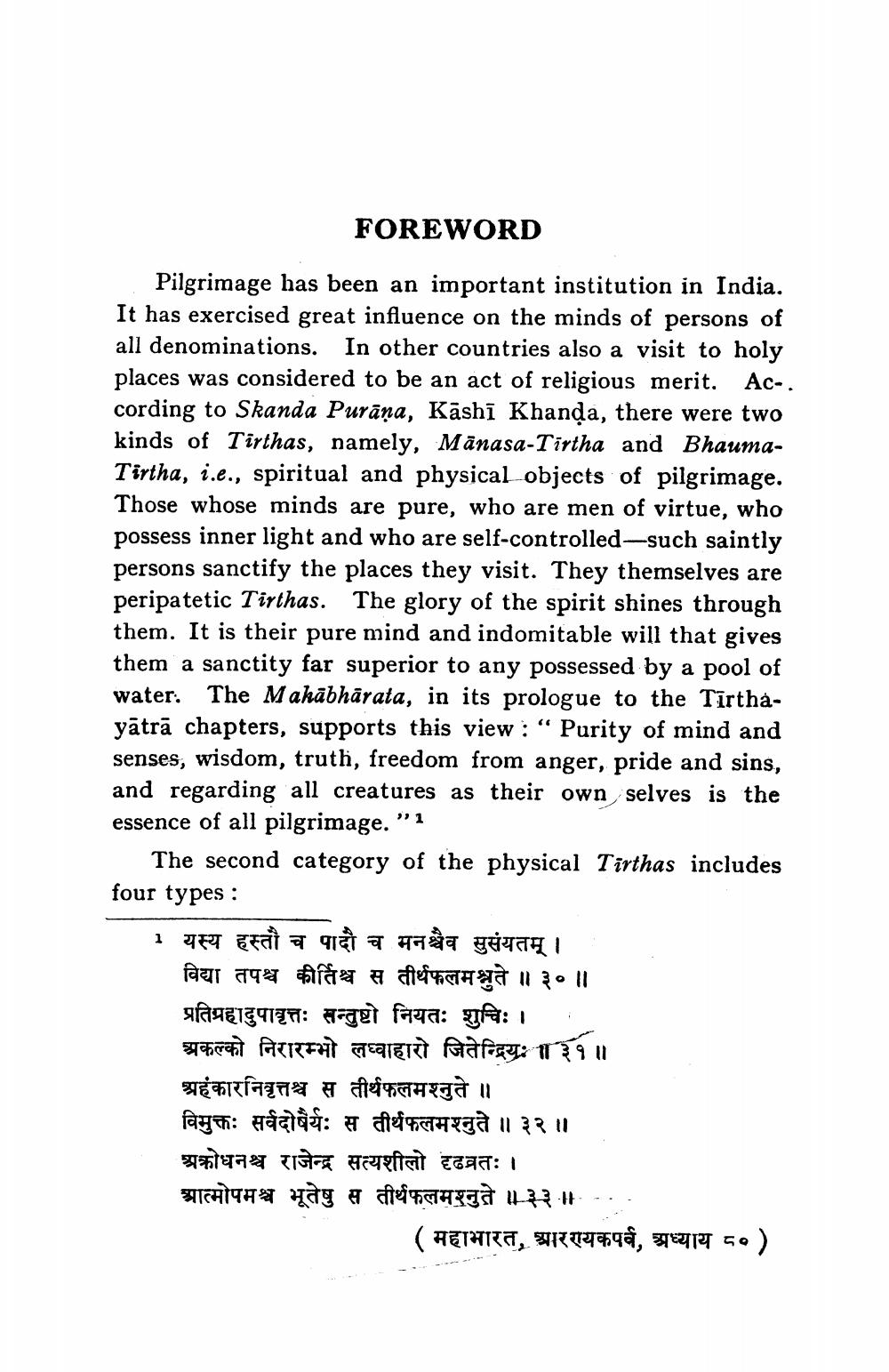________________
FOREWORD
Pilgrimage has been an important institution in India. It has exercised great influence on the minds of persons of all denominations. In other countries also a visit to holy places was considered to be an act of religious merit. Ac-. cording to Skanda Purana, Kashi Khanda, there were two kinds of Tirthas, namely, Mānasa-Tirtha and BhaumaTirtha, i.e., spiritual and physical objects of pilgrimage. Those whose minds are pure, who are men of virtue, who possess inner light and who are self-controlled-such saintly persons sanctify the places they visit. They themselves are peripatetic Tirthas. The glory of the spirit shines through them. It is their pure mind and indomitable will that gives them a sanctity far superior to any possessed by a pool of The Mahabharata, in its prologue to the Tīrthayātrā chapters, supports this view : “ Purity of mind and senses, wisdom, truth, freedom from anger, pride and sins, and regarding all creatures as their own selves is the essence of all pilgrimage.
water:
"1
The second category of the physical Tirthas includes four types :
1
यस्य हस्तौ च पादौ च मनश्चैव सुसंयतम् । विद्या तपश्च कीर्तिश्च स तीर्थफलमश्रुते ॥ ३० ॥ प्रतिग्रहादुपावृत्तः सन्तुष्टो नियतः शुचिः । अकल्को निरारम्भो लघ्वाहारो जितेन्द्रियः ॥ ३१॥ अहंकारनिवृत्तश्च स तीर्थफलमश्नुते ॥ विमुक्तः सर्वदोषैर्यः स तीर्थफलमश्नुते ॥ ३२॥ अक्रोधनश्च राजेन्द्र सत्यशीलो दृढव्रतः । आत्मोपमश्च भूतेषु स तीर्थफलमश्नुते ॥ ३३ ॥
( महाभारत, आरण्यकपर्व, अध्याय ८० •)




